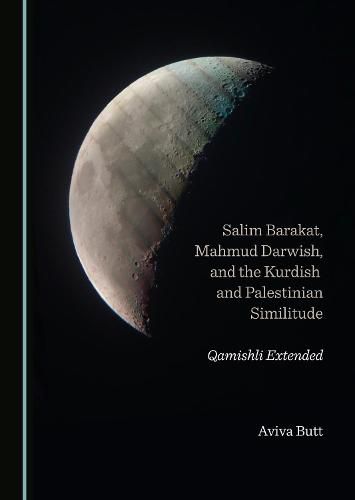Readings Newsletter
Become a Readings Member to make your shopping experience even easier.
Sign in or sign up for free!
You’re not far away from qualifying for FREE standard shipping within Australia
You’ve qualified for FREE standard shipping within Australia
The cart is loading…






The poetry of Salim Barakat aims to recapture the ancient oral culture of the Kurdu, and, in so doing, re-invent a distinctly Kurdish culture. Through poetic innovation, this intensely Kurdish poet brings modernity to ancient Kurdish structures.This book provides an overview of new developments in modern Arabic poetry, as seen through the creativity of its leading exponents, Barakat and Mahmud Darwish, as well as the older Syrian poet Adunis. Its unsurpassed translations of the work of these poets open up possibilities for the reader to enjoy first-hand what modern Arabic poetry has to offer.Translating Barakat’s poetry, and understanding something of what this great poet has to say has thrown new light on the output of his friend Mahmud Darwish. It becomes clear that the Palestinian poet uses a semblance of Barakat’s Kurdish Shahnama and also his Ballade, genres that hail from orality. Analyzing Darwish’s Fewer Roses, and The Hoopoe, we find that the former is an epic with 50 episodes telling of the wanderings of Palestinians in exile. The Hoopoe is specifically a Sufi poem based in the literary Sufism of medieval poets. Darwish has left us with clear instructions on how to translate his poetry, which this book carefully follows.
$9.00 standard shipping within Australia
FREE standard shipping within Australia for orders over $100.00
Express & International shipping calculated at checkout
The poetry of Salim Barakat aims to recapture the ancient oral culture of the Kurdu, and, in so doing, re-invent a distinctly Kurdish culture. Through poetic innovation, this intensely Kurdish poet brings modernity to ancient Kurdish structures.This book provides an overview of new developments in modern Arabic poetry, as seen through the creativity of its leading exponents, Barakat and Mahmud Darwish, as well as the older Syrian poet Adunis. Its unsurpassed translations of the work of these poets open up possibilities for the reader to enjoy first-hand what modern Arabic poetry has to offer.Translating Barakat’s poetry, and understanding something of what this great poet has to say has thrown new light on the output of his friend Mahmud Darwish. It becomes clear that the Palestinian poet uses a semblance of Barakat’s Kurdish Shahnama and also his Ballade, genres that hail from orality. Analyzing Darwish’s Fewer Roses, and The Hoopoe, we find that the former is an epic with 50 episodes telling of the wanderings of Palestinians in exile. The Hoopoe is specifically a Sufi poem based in the literary Sufism of medieval poets. Darwish has left us with clear instructions on how to translate his poetry, which this book carefully follows.